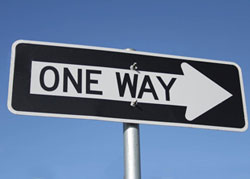 Does the human response to global environmental challenges need to be channelled through authoritarian, controlled ‘transitions’? Threatened by climate change, should we ‘put democracy on hold for a while’? Or could more unruly modes of change, inspired by other ongoing radical social transformations – release from colonialism, racism and patriarchy, for example – offer more hope?
Does the human response to global environmental challenges need to be channelled through authoritarian, controlled ‘transitions’? Threatened by climate change, should we ‘put democracy on hold for a while’? Or could more unruly modes of change, inspired by other ongoing radical social transformations – release from colonialism, racism and patriarchy, for example – offer more hope?
A new paper by STEPS co-director Andy Stirling challenges the tendency towards authoritarian modes of dealing with environmental threats by drawing attention to the potential of more plural, emergent and unruly ‘transformations’ to achieve progressive change. Instead of seeing democracy as an ‘enemy of nature’, we can see hope-inspired democratic struggle as an essential part of sustainability, not an add-on.
From the abstract:
“Scientific and policy knowledges are becoming increasingly imprinted by the preoccupations of incumbent power with rhetorics of control. Under this growing political mood, it seems there is ‘no alternative’ but compliance, or irrational denial and existential doom.
Yet there are alternative ways to address the gravity of current ecological and social imperatives.
It can be recognised, for instance, that democratic struggle is the principal means by which knowledges and practices of Sustainability were shaped in the first place. In this view, concentrated power and fallacies of control are more problems than solutions. Here, history can show that the greatest ongoing forms of transformative progress (like release from colonialism, racism or patriarchy), owe more to plural knowledges and values and unruly hope-inspired agonistic contention, than to single orderly technical ‘transitions’ based on formally-integrated science or fear-driven structured control.”
Stirling (2014) Emancipating Transformations: From controlling ‘the transition’ to culturing plural radical progress, STEPS Working Paper 64
